With the scorn of Mother Nature taking its toll on our country this year, Charlotte home insurance policy holders are now seeing the consequences. All over the U.S. we have seen one natural disaster after the other from earthquakes, hurricanes, and tornadoes to completely unexpected and devastating snow storms. As a result, the number of claims that insurers are receiving is steadily on the rise which means policy holders are seeing themselves hit with higher insurance rates.


